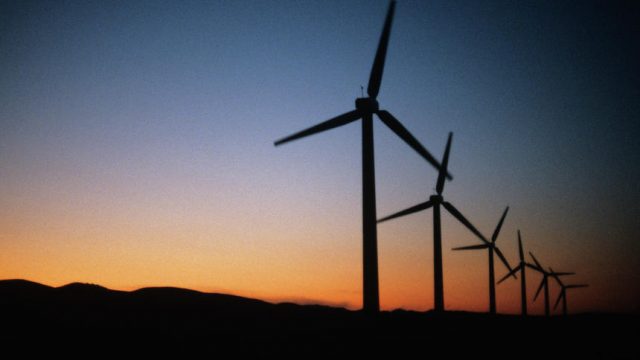Audio: Berkeley Scholar Calls Wind Energy Subsidies “Completely Perverse”

Wind turbines generating electricity
Steven Hayward, a Senior Resident Scholar at Berkeley’s Institute of Governmental Studies, has produced a report for Minnesota’s Center of the American Experiment which finds that power sources like wind and solar aren’t really accomplishing what their supporters say they are. This despite what Hayward described as “completely perverse” subsidies so massive they sometimes allow renewable energy companies to pay utilities to take their energy and still turn a profit.
Hayward, who appeared with me on my radio show yesterday, said wind power companies get a $0.23 per kilowatt hour subsidy. To put that into perspective, most power companies in North Dakota and Minnesota pay around $0.10 to $0.12 per kwh, according to Hayward.
In Minnesota, specifically, Hayward says a state mandate for renewable energies hasn’t lowered greenhouse gas emissions much at all. He says the state’s emissions have fallen “half as much as the rest of the nation.”
A big problem is that wind power isn’t a consistent source of power. “If wind power ran 90 percent of the time like nuclear or coal plants it would work better,” he told me.
He argues that to the extent greenhouse gas emissions are falling around the country, it’s because hydraulic fracturing has made a glut of natural gas available for power generation. “The largest share [of emissions cuts] has come not from renewable energy but from natural gas.”
The problem is that the aforementioned subsidies for renewables put base load power sources – coal plants, nuclear plants, gas plants, etc. – in the unwinnable position of losing market share to a heavily subsidized competitor even as they’re expected to maintain the capacity to provide the power grid with all the electricity it needs when the wind isn’t blowing and/or the sun isn’t shining.
Hayward says wind turbines produce “least in the summer months when energy demand is higher.”
Here’s our full interview:
[fcc_jw_podcast key=”GadmlG4E”]




